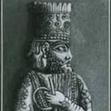Thomas Yaeger's Blog, page 12
June 14, 2018
Did the Greeks Invent Philosophy?
In addition to many non-specialist readers here who (I think) find the heretical line of argument in my posts interesting, there are also readers of this blog who are specialists in relevant fields, including classicists, archaeologists, historians, philosophers, theologians, etc. I’m grateful for their interest, and the often well-informed comments and exchanges, both here and via email. But sometimes specialists are more interested in defending academic turf, than in the elucidation of thei...
Published on June 14, 2018 06:54
June 10, 2018
Man and the Divine
This is my second collection of essays on philosophy and ancient history. Like my first collection, Understanding Ancient Thought, it expands further on the arguments of The Sacred History of Being, which appeared in November 2015. Most of the 22 chapters have appeared in draft form on my web site, and one first appeared on the web site of the Bibliographica Philosophica Hermetica, run by the Ritman Library in Amsterdam (‘The Esoteric Conception of Divinity in the Ancient World’). Man and the...
Published on June 10, 2018 09:17
June 2, 2018
The Tangled Thread: Universals in History

This piece of text was the original (and short) opening chapter to the draft of The Sacred History of Being which was on my desk in 2004. I was toying with a number of possible titles for the book at the time, and the favoured title of the moment (June 2004) was The Shrine in the Sea. This was because there was a large focus on the Mesopotamian idea of the Abzu, home to Enki/Ea at the bottom of the sea. Ea was the broad-eared Mesopotamian god of wisdom, and all important things were unde...
Published on June 02, 2018 01:30
May 30, 2018
'I and Thou'. Anthropology and the Presumption of Primitive Intellectual Error in Antiquity.
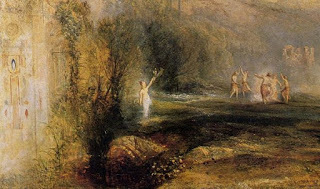
[This is a section from Thomas Yaeger’s book J. G. Frazer and the Platonic Theory of Being, published by the Anshar Press in April 2016.]
4.1. The problem of the authentic Socrates may reside mainly with ourselves: we make a clear distinction between ethical issues and matters of ontology. A proper reading of Aristotles's Ethics however, shows quite clearly that ethical issues were not distinguished in this way by Plato's pupil. The anabasis of the soul described in that work implies at the le...
Published on May 30, 2018 18:00
Cultural Continuity in the Ancient World, and Bernal's 'Black Athena'
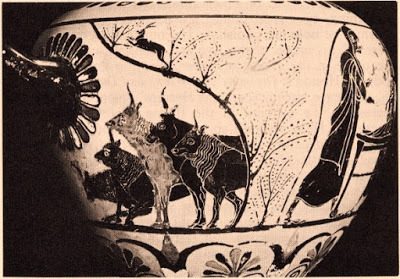
This text, in its original manuscript form, was the second chapter (original title: 'The Construction of the Intellectual world of Antiquity') of the book The Shrine in the Sea. It dates from June 2004. It did not make it through to the text which was published in 2015 with the new title: The Sacred History of Being. I’ve re-edited and updated the text (May 2018). The text also contains a link to an analysis of the final volume of Black Athena, which takes a linguistic look at possible c...
Published on May 30, 2018 06:31
May 24, 2018
Inside Plato's Academy
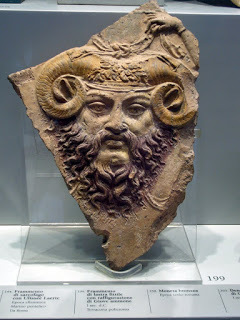
[This is a full chapter from The Sacred History of Being, published in 2015 by the Anshar Press].
We do not have anything from ancient Greece which resembles a formal ontological argument. We might expect such an argument to be absent from the record owing to the polytheistic character of Greek religion. If that is, that we accept the notion that polytheism represents a state of cultural development which precedes the kind of intellectual precision which is necessary to undertake discussions...
Published on May 24, 2018 04:11
May 3, 2018
Egypt in the Shadows

An interesting response from a doctoral student (Benjamin Murphy, studying philosophical theology, Oxford) on the question of whether or not the Greeks were the first to practice philosophy, or whether philosophy was first practiced by the Ancient Egyptians, and also in ancient India. The response, which appeared originally on the Quora site, reveals a great deal about the presumptions western scholars bring to bear on such questions.
He begins by referencing Frederick Copleston on the...
Published on May 03, 2018 09:36
April 19, 2018
The Edithorial: Genealogy of the Divisive Tyrant
The Edithorial: Genealogy of the Divisive Tyrant: It’s been week of the unaccountable autocrats. I gave my second lecture as Gresham Visiting Professor in Classics, on Sappho, viewable ...
Published on April 19, 2018 04:35
April 10, 2018
Reviewer Notes for 'The Sacred History of Being' (2015)
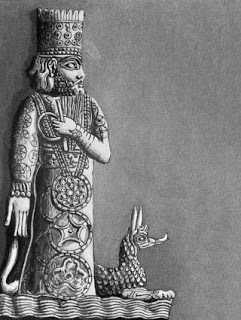
Notes on Part One:
The Preface gives an outline overview of the book and its parts, and something of the context. One way to look at the book and its subject is as an extension of A.O. Lovejoy’s The Great Chain of Being, which examined the idea of Plenitude from the Classical Greeks onwards. SHB provides an extra nine hundred years to the history of the idea of Being, taking it back into the 14th century B.C.E.
The first chapter explains something of the authors background, and how he came to...
Published on April 10, 2018 14:55
April 9, 2018
Before Anthropology
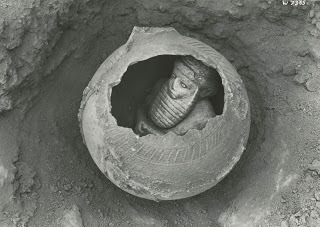
[This is a short chapter from my forthcoming book, The Origins of Transcendentalism in Ancient Religion]
***
Much of the discussion of ancient religion is from an anthropological perspective, so it makes sense to look first at the development of anthropological writing. The first chapter of Eriksen and Nielsens, A History of Anthropology (2001) gives a general account of what they call ‘proto-anthropology’, covering the period from Herodotus up to the European Enlightenment.
It is beyond doubt,...
Published on April 09, 2018 04:33

